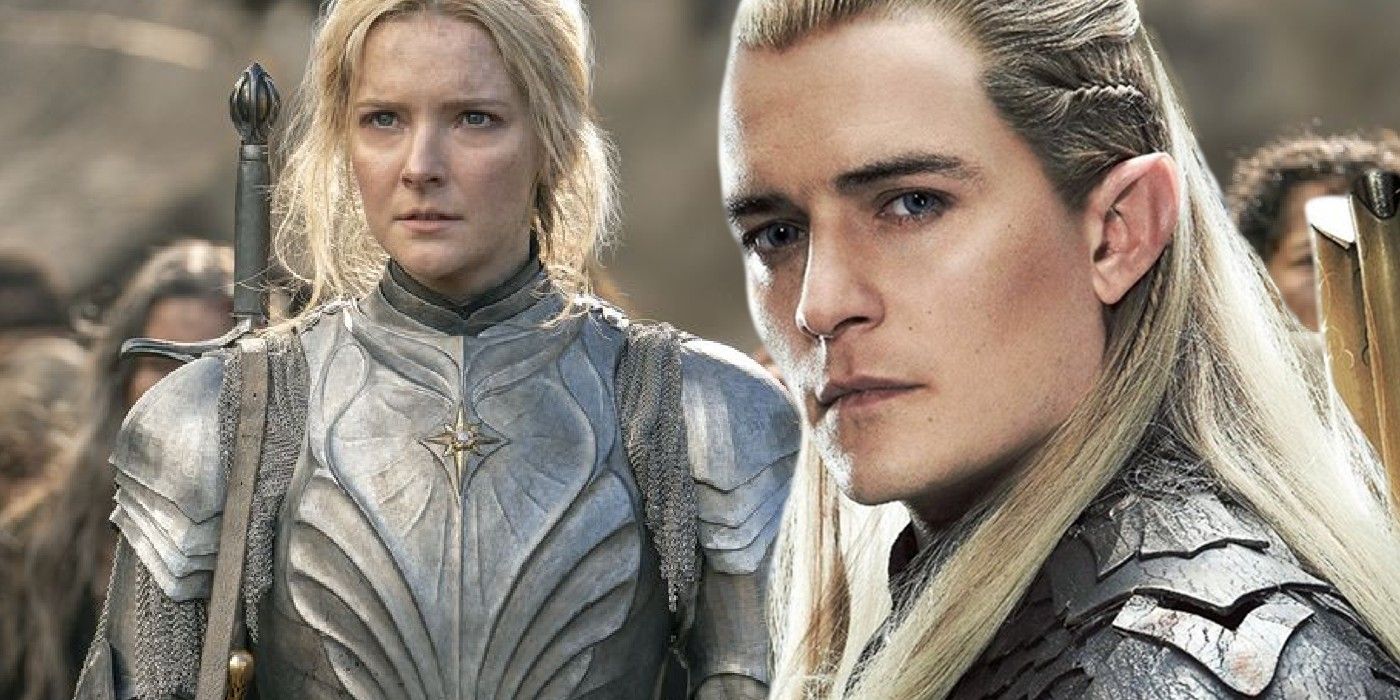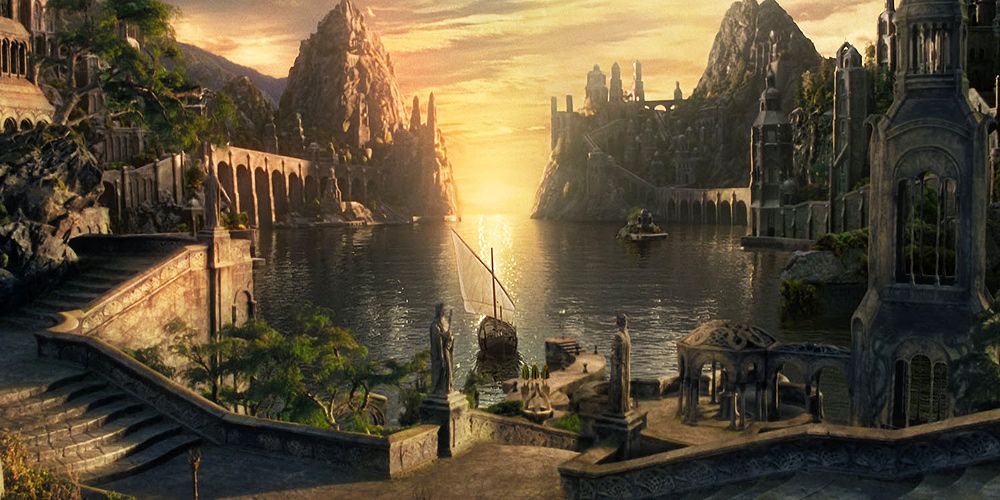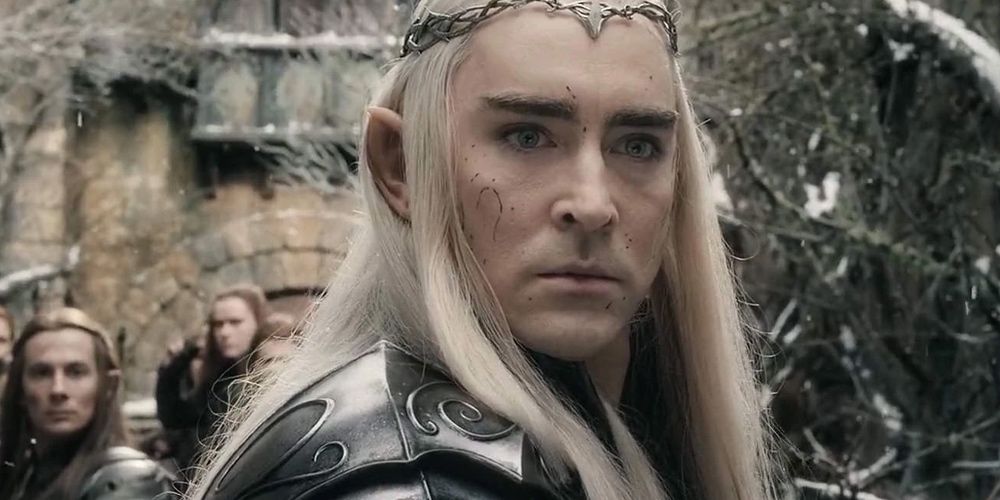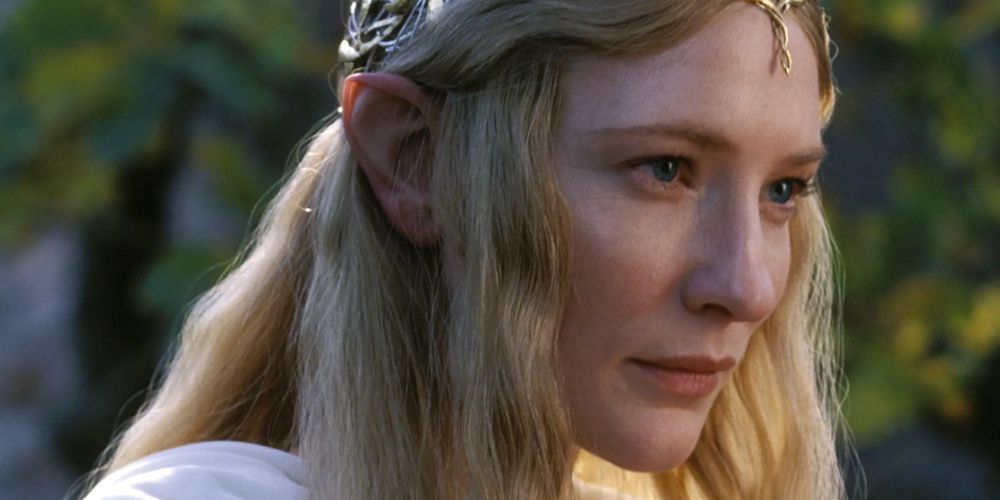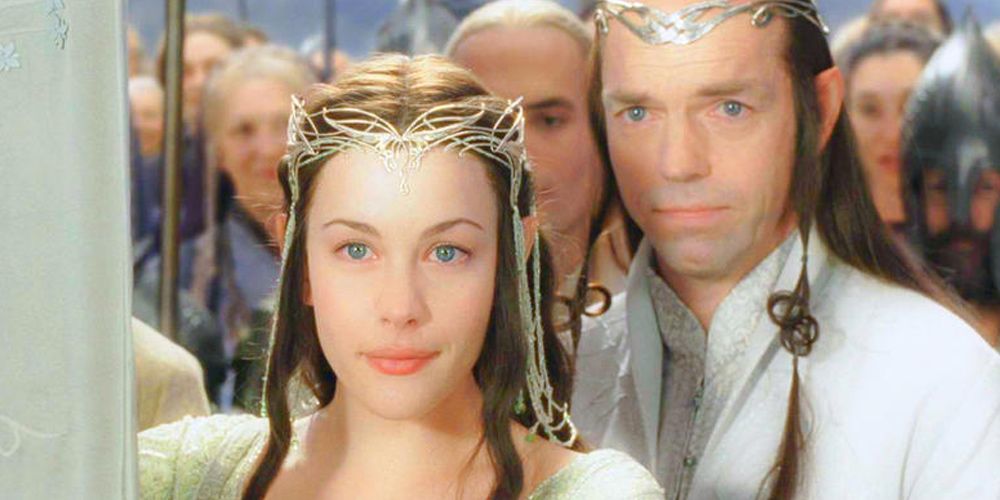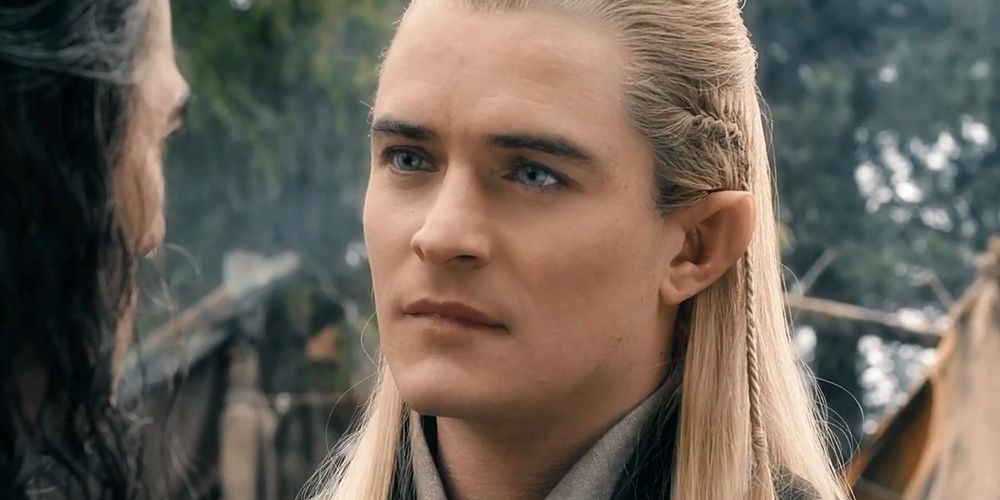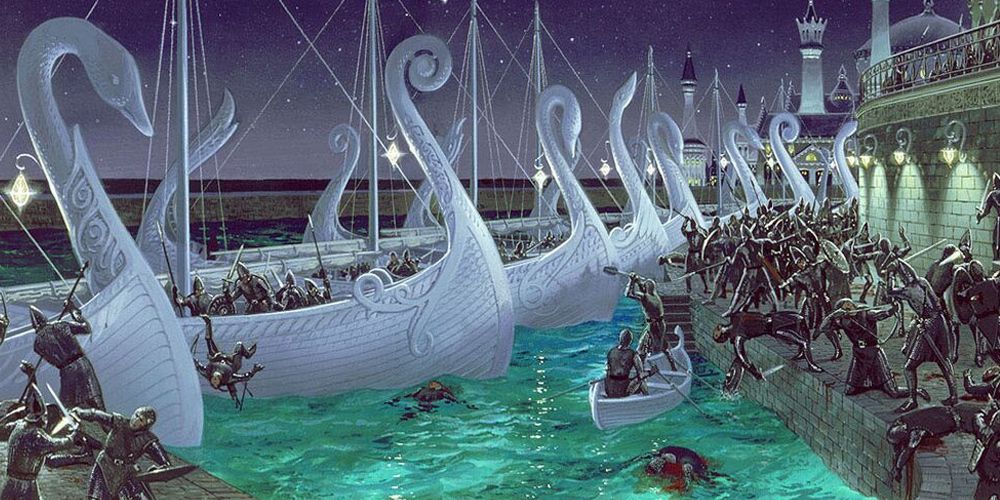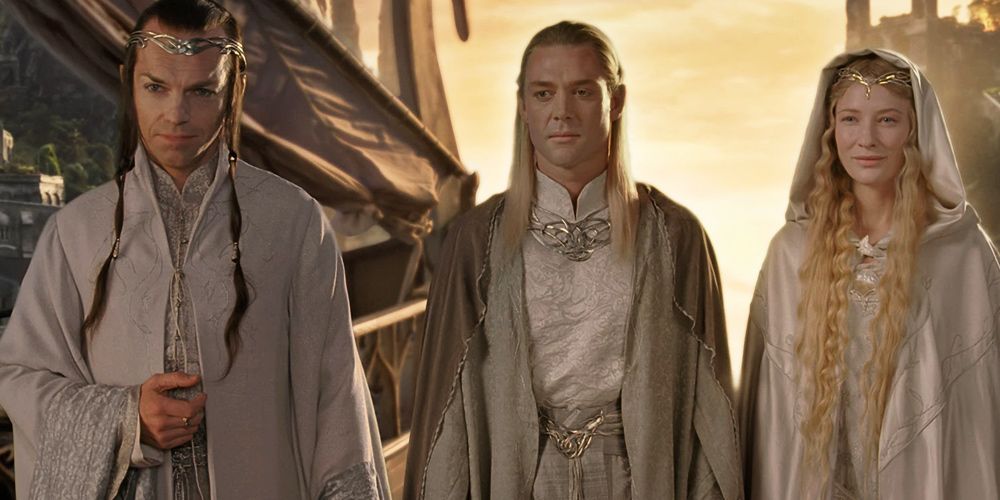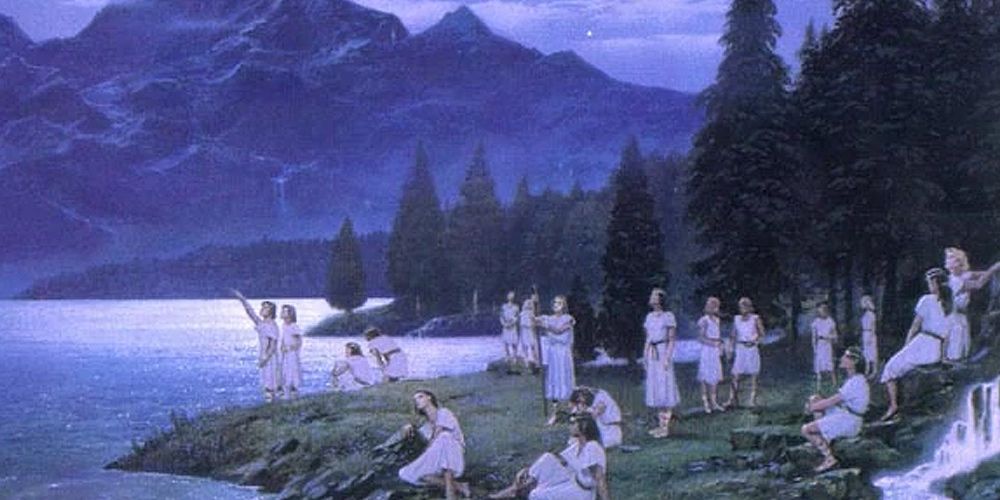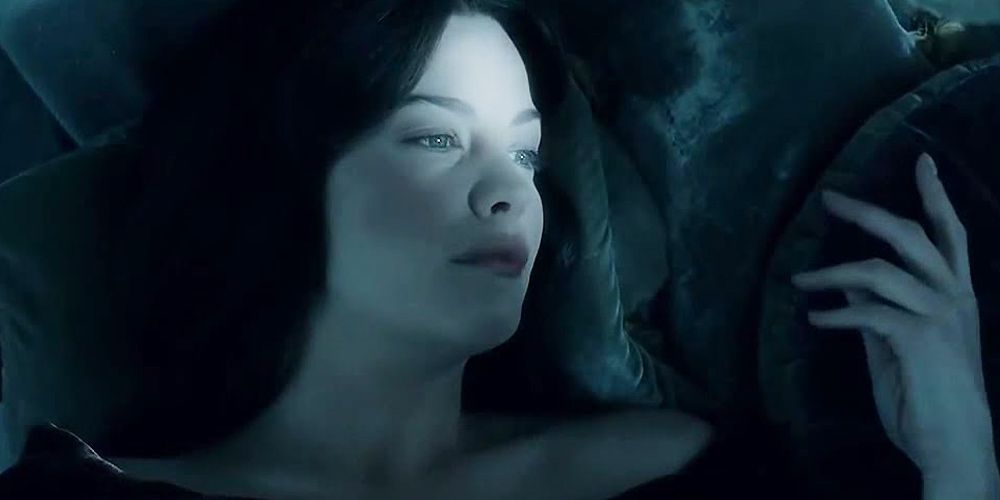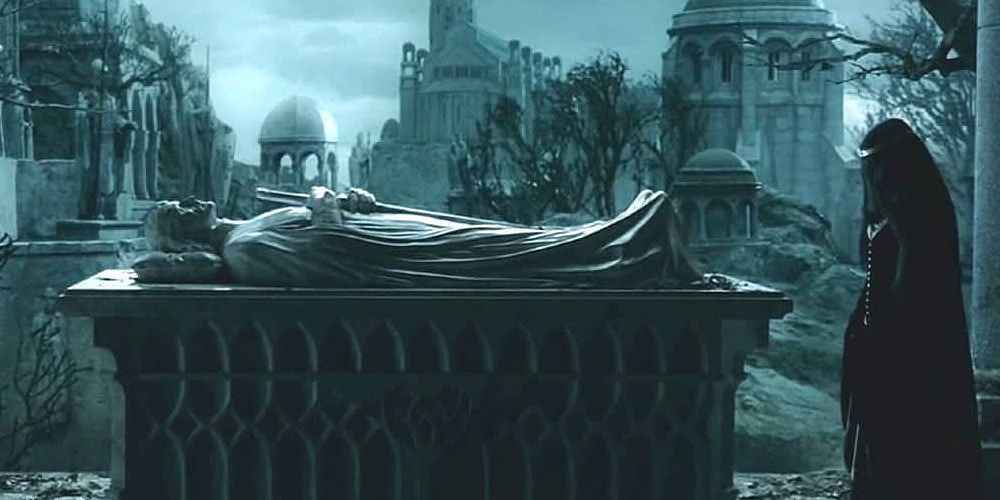The Lord of the Rings trilogy did a great job condensing J.R.R. Tolkien's irreplaceable novels for the movies, and introducing audiences to the definitive versions of the most well-known fantasy archetypes and races. One such race was that of the Elves, who are probably best represented in live-action by Legolas.
But as amazing and legendary as Peter Jackson's cinematic trilogy is, it still left out key parts of the Elves' lives and history. The same goes for Amazon's The Rings of Power, which either cut some things out or changed them for adaptation's sake. These Elvish facts are only known to those who read the books.
10 The Grey Havens Weren't The Elves' Final Resting Place
Throughout The Lord of the Rings trilogy, the Elves made a big deal about leaving Middle-Earth. Their destination was the Grey Havens, which was described to be an eternally peaceful sanctuary. However, most viewers may not have realized that the Grey Havens was just the port that led to the Elves' true destination.
The Elves were going to retire in Valinor, also known as "The Undying Lands." The Grey Havens appeared in The Return of the King's bittersweet final moments, but Valinor was never shown. Because of this, it became fairly common for movie-only fans to mistake the Grey Havens for the Elves' promised paradise.
9 Thranduil Wasn't Named In His First Canonical Appearance
Thranduil first appeared in The Hobbit movies, and was revealed to be Legolas' father. Thranduil ruled the Woodland Realm, and played a major part in the generations-long schism between Elves and Dwarfs. But in The Hobbit's text, Thranduil was never named and was only referred to as "The Elvenking."
Thranduil was only named in The Lord of the Rings books, where he barely played a part and was completely absent from the movies. Some additions made to Thranduil for the disappointing The Hobbit prequels include his tense and estranged relationship with Legolas, and his increased spite towards Dwarfs – especially for Thorin.
8 Galadriel's Gift To Gimli Had Historical Significance
In The Fellowship of the Ring, the Fellowship was given gifts by Galadriel during their stop-over at Lothlorien. While everyone got weapons and provisions in The Fellowship of the Ring's extended cut, Gimli got three stands of Galadriel's hair. This was a heartwarming moment, but it had a deeper meaning in the books.
Besides Galadriel and Gimli overcoming eons of animosity and hatred between their races, Galadriel denied the legendary elf Fëanor of a similar request. In The Silmarillion, Galadriel rejects Fëanor's request for one strand because she sees the darkness in his soul. Conversely, she saw only good in Gimli, hence her gift of three.
7 Elrond & Arwen Were Half-Human
To most viewers, Elrond and his daughter Arwen were just ordinary Elves. In truth, they were Half-Elves who descended from a bloodline of Elves and men, and were given the choice of immortality. The expertly adapted Lord of the Rings trilogy didn't really focus on this heritage or feature that many Half-Elves to begin with.
In the books, Elrond had two sons, Elladan and Elrohir, who played important roles in the Third Age's most significant battles. It was Elladan and Elrohir who told Aragorn about the Paths of the Dead and helped break the Siege of Gondor. In the movies, the Half-Elf twins were excised. Arwen was depicted as Elrond's only child.
6 Legolas Came From A Lower Caste Of Elf
The Lord of the Rings trilogy never dwelled on it, but the Elves actually have a complex family tree and caste system. Although the movies depicted all Elves as equally royal and regal, some Elves were superior to others based on their culture and history. Because of this, Legolas is technically a lower Elf.
To be specific, Legolas was a Sindar (or Grey Elf). These Elves joined the Great Journey to Valinor, but never managed to set foot in the promised lands. Instead, they settled in Middle-Earth. The Sindar were granted the title of Middle Elves, lesser than High Elves but slightly above the Dark Elves.
5 The Elves Had A Violent Past
Even though they fought in the War of the Last Alliance against Sauron during the Second Age, the Elves were depicted as benevolent and resigned to a peaceful retirement in The Lord of the Rings trilogy's present. The movies never got a chance to show just how bloodthirsty the Elves were in the First Age.
Fëanor, the leader of the Noldor clan, wanted to leave Valinor to kill the evil Morgoth in Middle-Earth. Fëanor's people needed boats, and tried to steal some from the Teleri clan. This led to a bloody clash that came to be known as the Kinslaying at Alqualondë, which was also the first time Elves killed one of their own.
4 Middle-Earth's Elves Were Basically Exiles
One thing The Lord of the Rings movies never really made clear was more Elves living outside of Middle-Earth. Eons ago, the Elves were invited by Oromë (a Valar, or an angel) to leave Middle-Earth and live the rest of their days in Valinor. The Great Journey to Valinor then led to the Elves splitting up.
During the Sundering of the Elves, the Elves were divided between those who trekked to Valinor (the Eldar), and those who did not (the Avari). The Eldar were sundered too, with some entering Valinor and others staying in Middle-Earth. Those who remained were the ancestors of the Elves seen in the seemingly timeless The Lord of the Rings.
3 The Elves Were Middle-Earth's Oldest Race
As far as the Oscar-winning The Lord of the Rings movies were concerned, the Elves were literally ancient and the closest of Middle-Earth's races to being immortal. This was true in the books, although they went further. The Elves were the first sentient creations made by Eru Ilúvatar, The Lord of the Rings' equivalent to "God."
The Elves quickly developed their own languages, cultures, and societies shortly after coming to life. Long before the wars for the rings and the events of The Lord of the Rings, the Elves were already a very advanced civilization. But if the Elves were the first to be born, they were also the last to truly die.
2 The Elves Were A Dying Race
Although they were concerned about Sauron's return to power, the Elves didn't help much because their priority was moving out of Middle-Earth. The Lord of the Rings movies (which feel like a Dungeons and Dragon campaign) made it seem like the Elves were just weary of wars and ready to retire, when, in fact, they were a dying race.
Thanks to their long lives, low birth rates, and countless dead, the Elves were doomed to go extinct in a generation or two. This was why they chose to leave Middle-Earth and live out the rest of their days in Valinor. The movies didn't erase the Elves' goals and resignation, but didn't emphasize them as much as the books did.
1 The Elves Were Immortal, Even In Death
Elves were literally immortal. They could live for centuries and look young for eons. Meanwhile, Elves who died in battle were reincarnated in the Halls of Mandos. Elves were basically immortal souls that spent some time in mortal flesh. However, the trade-off for this was that they could only truly "die" when the planet Arda died.
When their souls outlived their bodies, Elves lived on as invisible spirits called "Lingerers." They would only stop living when the world ceased to be. Conversely, humans who died simply stopped existing. It could be interpreted that Elves envied man's chance to live shorter yet more meaningful lives as opposed to outliving life itself.

